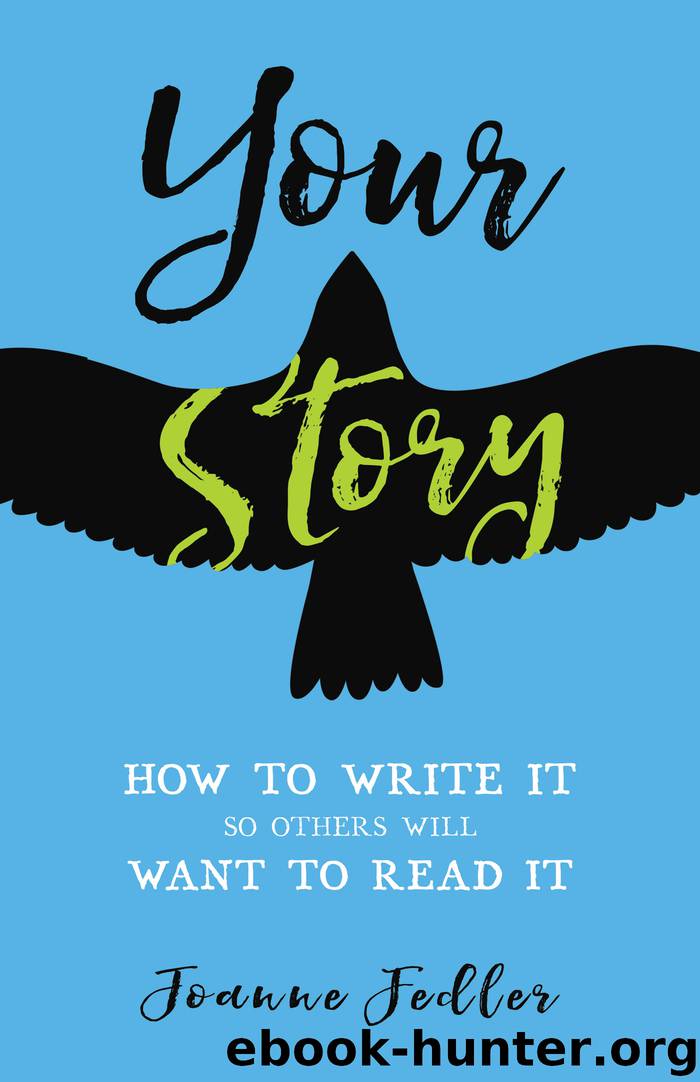Your Story by Joanne Fedler

Author:Joanne Fedler
Language: eng
Format: epub
Publisher: Hay House
Published: 2016-06-27T04:00:00+00:00
65
Where it aches
The great cellist Gaspar Cassadó used to say to his students, “I’m so sorry for you, your lives have been so easy. You can’t play great music unless your heart’s been broken.” I believe this is true of writing too. I’m not one to romanticize hardship or grief, but we all know that we have to have a truthful conversation with these ouchy places. They do not sink quietly away. They have an energy and life force and if we tap into them, they become a source of our own creativity. Happiness is often more difficult to write about. It can be boring, unless it is fragile or hard-won. As the wonderful Buddhist teacher Pema Chödrön said, “If it’s painful, you become willing not just to endure it but also to let it awaken your heart and soften you. You learn to embrace it.” For each of us, there is a place where our suffering started. That’s where the pain of our past sits, waiting for us to find it.
I don’t believe we always have to write about our pain, but we do have to write from it. Because emotion is the key to connection with a reader—it’s one of the elements of what I call “transition,” where we cross the bridge from the personal to the universal. Our reader may not have been bullied, lost a limb, buried a child, or gone through our personal hell, but every single person knows love, loss, grief, pain, regret, guilt, and sorrow.
Explore how you experience grief, love, shame, desire, hope, fear, joy, loneliness, passion, pain, elation, regret. Get down deep into those gritty emotions. Imagine them as characters in your life. What is your relationship with them? No one feels them in the exact way you do. Because here’s the kicker: you can only take a reader as far as you have gone. So, how far have you really gone? Can you go further?
In later sections on Techniques, I’ll talk about “touch and being touched” and “telling the truth”—both essential components for finding your unique writing voice.
For now, it’s enough to know that you can begin your story by writing about:
things that make you happy (in an interesting way, because happiness is not that interesting all by itself);
what has brought you to your knees;
your deepest regrets;
the saddest you have ever been;
the worst stress you have ever experienced;
the deepest peace you have ever known;
a time when you couldn’t find a way to go on;
an emotion that dominates your life (fear, anxiety, loneliness, anger, hatred, joy, regret);
a time when you panicked;
a time when you were truly conflicted and how you resolved it;
a time in your life when things did not work out and fell apart around you;
jealousy;
anxiety;
any other emotion.
Download
This site does not store any files on its server. We only index and link to content provided by other sites. Please contact the content providers to delete copyright contents if any and email us, we'll remove relevant links or contents immediately.
Big Magic: Creative Living Beyond Fear by Elizabeth Gilbert(5773)
Paper Towns by Green John(5191)
On Writing A Memoir of the Craft by Stephen King(4944)
The Doodle Revolution by Sunni Brown(4761)
Hyperfocus by Chris Bailey(4118)
Evolve Your Brain by Joe Dispenza(3679)
Unlabel: Selling You Without Selling Out by Marc Ecko(3663)
The Red Files by Lee Winter(3416)
Draw Your Day by Samantha Dion Baker(3364)
The Power of Mindful Learning by Ellen J. Langer(3222)
The Art of Dramatic Writing: Its Basis in the Creative Interpretation of Human Motives by Egri Lajos(3068)
The War Of Art by Steven Pressfield(2961)
Applied Empathy by Michael Ventura(2904)
The 46 Rules of Genius: An Innovator's Guide to Creativity (Voices That Matter) by Marty Neumeier(2856)
How to be More Interesting by Edward De Bono(2791)
Keep Going by Austin Kleon(2763)
Why I Am Not a Feminist by Jessa Crispin(2760)
How to Stop Worrying and Start Living by Dale Carnegie(2722)
You Are Not So Smart by David McRaney(2655)
